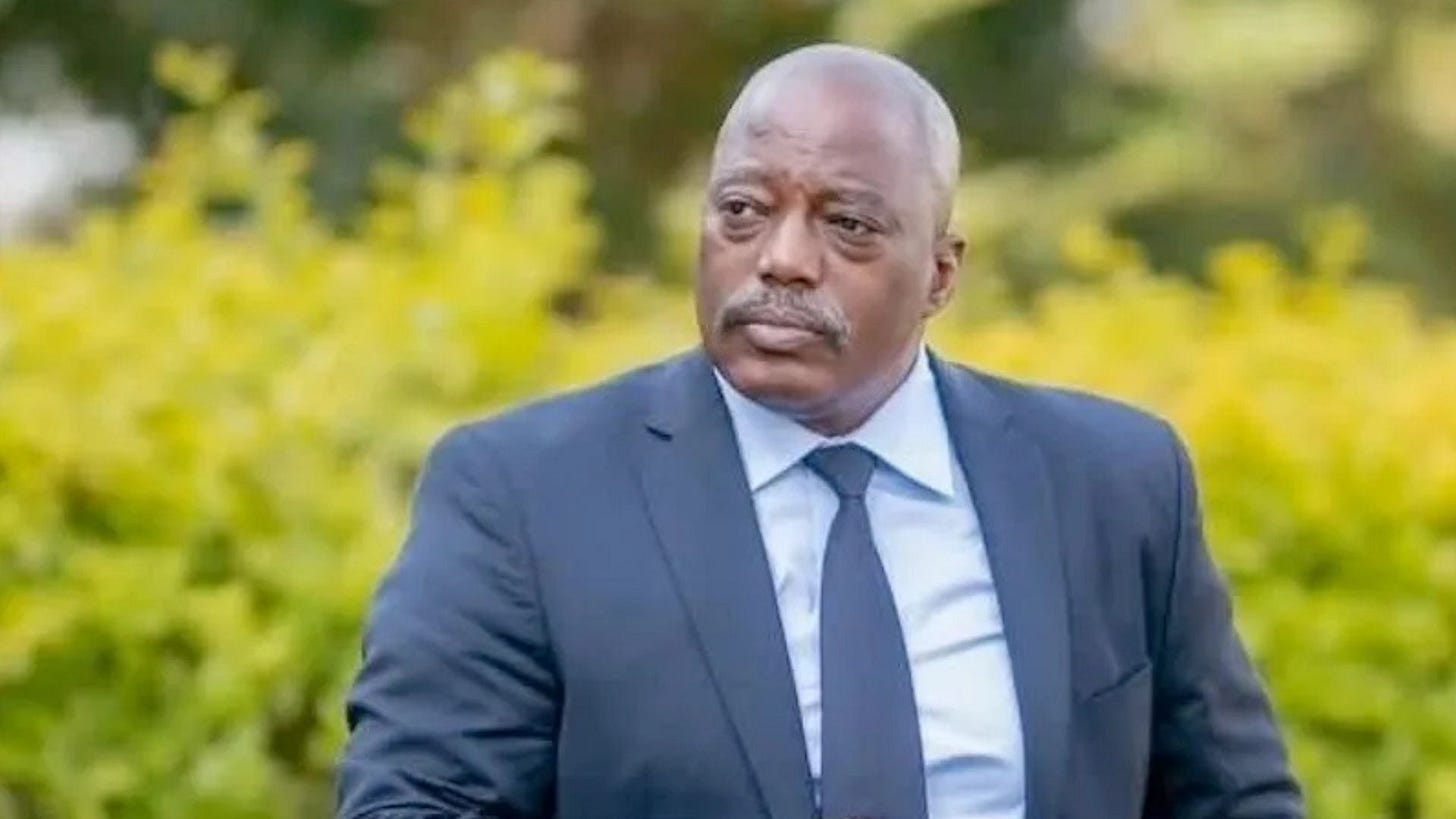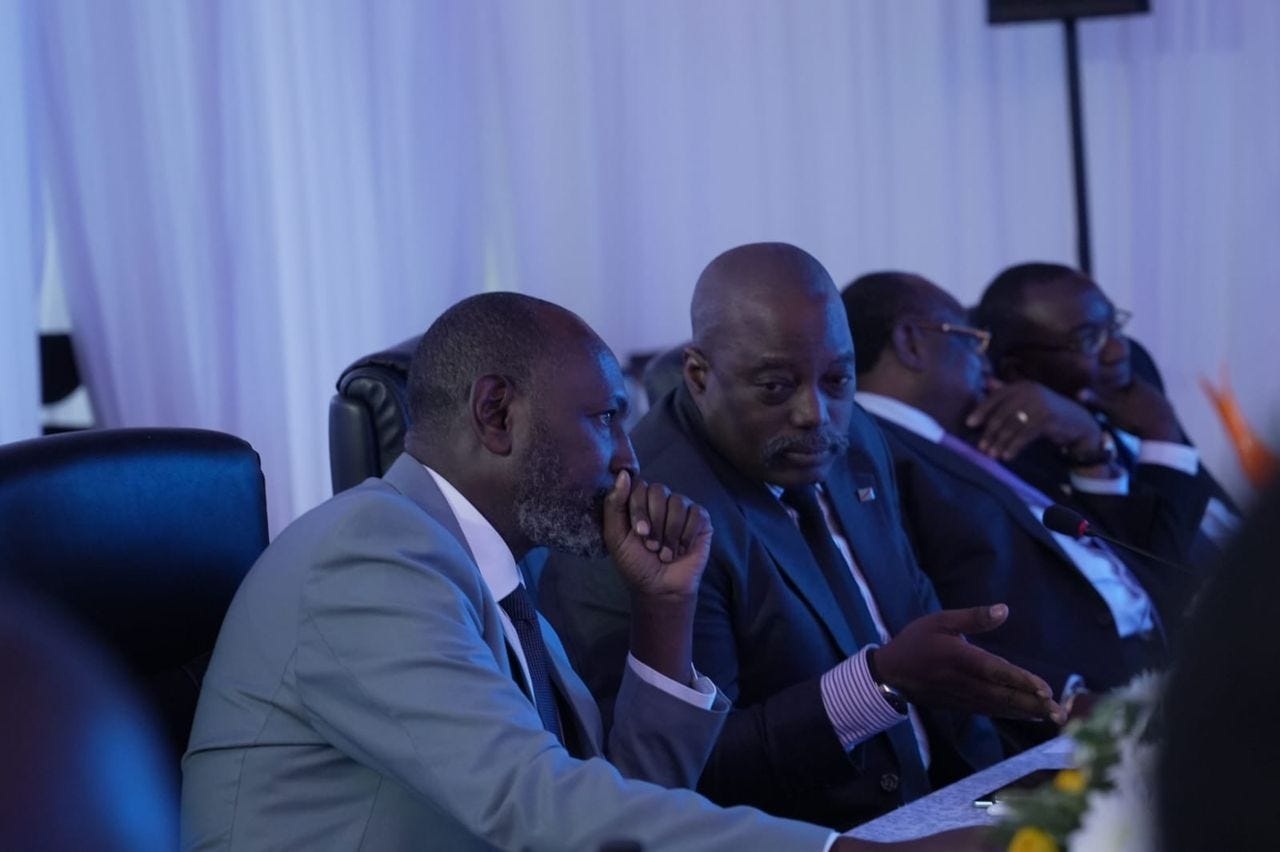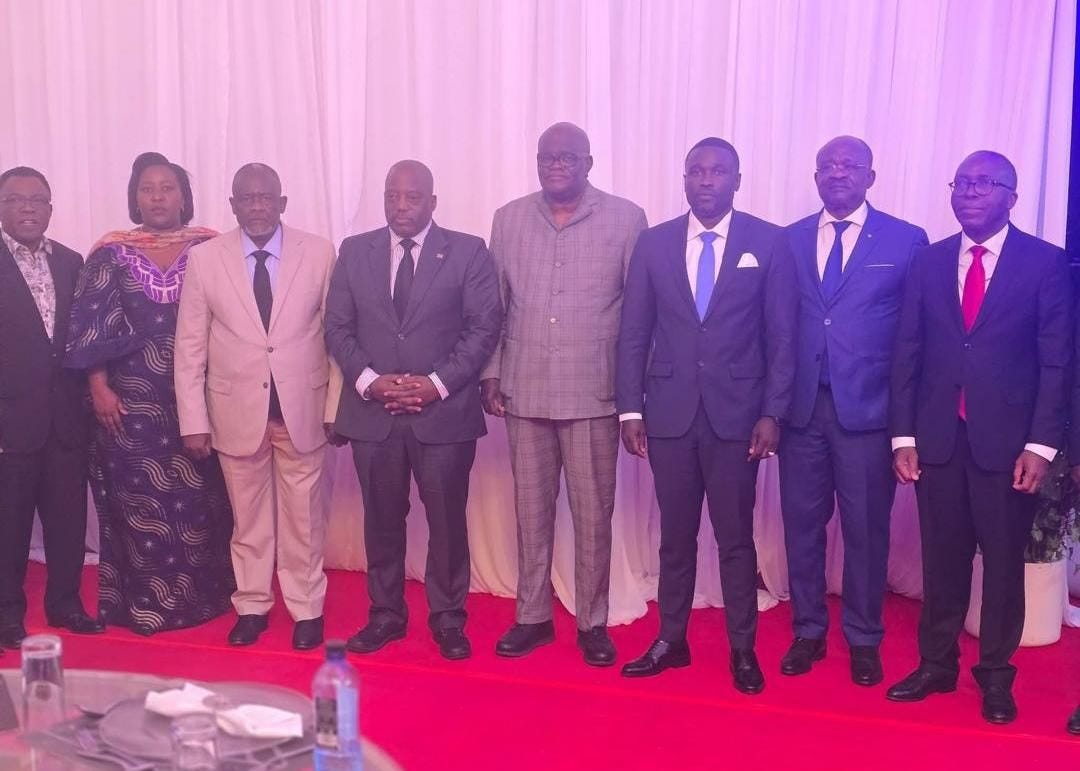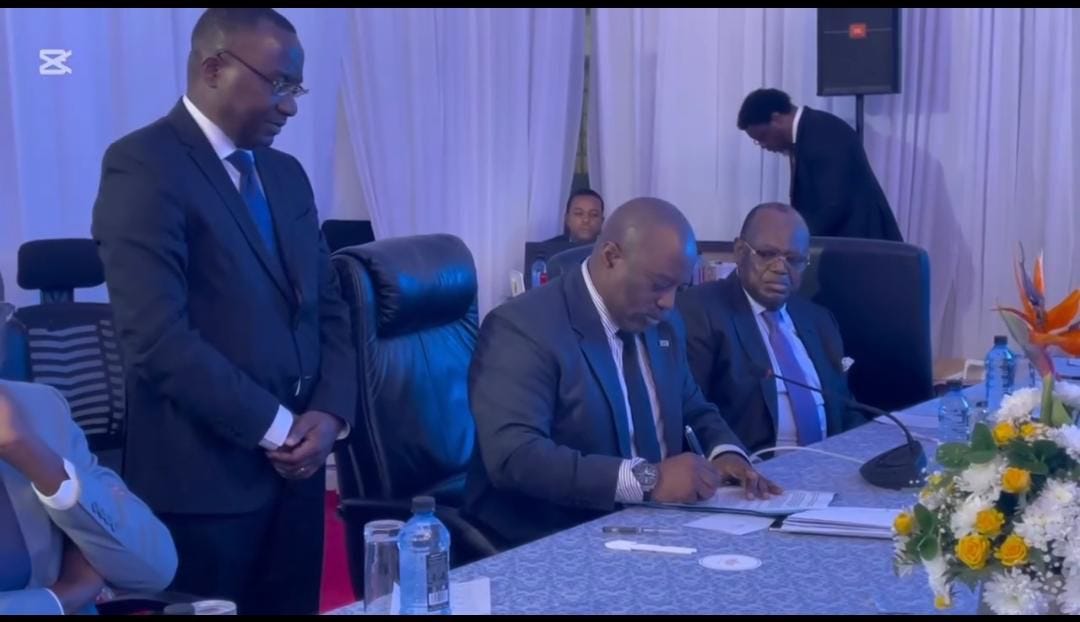Kabila's New Coalition to "End Dictatorship" in DR Congo
Former president rallied political forces at a Nairobi conclave, signalling determination to reclaim influence in national affairs, prompting official fury in Kinshasa.
Political Comeback
Former Congolese president, Joseph Kabila Kabange, has taken a major step back to frontline politics, as he brought together opposition and civil-society leaders under a new platform—Sauvons la RDC.
Kabila presided a two-day conclave in Nairobi, a meeting that concluded with a joint statement and four binding resolutions calling for a united front to “end dictatorship, restore democracy, and reconcile the nation.”
His return to active politics began last May, when he made a surprise home-coming, crossing into the DRC through Goma—a city then partially under rebel control.
That bold move followed months of speculation about his future, and came in the wake of a death sentence issued against him by the Congolese Military High Court. Allies dismissed the martial ruling as “a judicial and political absurdity.”
More than a simple defiance, the Nairobi conclave on 14 and 15 October signals Kabila’s determination to reclaim influence in national affairs after several years of relative silence.
Deep Crisis
The Nairobi declaration portrays the DRC as engulfed in a “deep and multidimensional crisis,” alleging political illegitimacy, economic collapse, and deteriorating security.
Participants denounced President Félix Tshisekedi for “incompetence and irresponsibility,” accusing him of manipulating justice, weakening democratic institutions, and failing to pacify the country’s turbulent east.
The opposition also claimed that the 2023 elections were marred by fraud, enabling the consolidation of an “illegitimate regime.”
They warned that proposed constitutional changes would deepen national divisions rooted in regionalism, tribalism, and political intolerance.
One of the most striking resolutions rejects the military court’s sentencing of Kabila to death, calling the verdict “illegal, null, and void.”
Signatories said the trial was politically motivated and violated both the DRC’s Constitution and international human rights standards.
“The verdict is a direct attack on national cohesion and on the rule of law,” the document states, urging judicial reform and full respect for constitutional guarantees afforded to former heads of state.
The Nairobi Mix
About 30 Congolese political figures attended the conclave, including former Prime Minister Matata Ponyo Mapon and former Senator Moïse Nyarugabo.
Notably absent was Moïse Katumbi, the influential opposition leader and former governor of Katanga, who had been expected to attend.
Martin Fayulu, another major opposition figure and former presidential candidate, said he was not invited, remarking that “real opposition unity must come from inclusivity, not exclusion.”
Kabila’s choice of guests—a mix of former officials, dissidents, and civil-society representatives—underscores his intention to build a structured alliance rather than a loose coalition of personalities.
The conclave officially launched the Sauvons la RDC movement—S.O.S Congo—a framework to coordinate opposition efforts and mobilise citizens.
The platform will meet quarterly under the guidance of Kabila who was designated by participants to serve as its leader.
In his role, he’s tasked with steering the movement “until the complete liberation of the Congo from the yoke of dictatorship.”
“All Congolese, wherever they are, must act each day to save our nation,” the Nairobi declaration reads. “Every gesture will count toward victory and dignity.”
The new alliance also pledged to mount a diplomatic campaign to brief African governments and international partners about “the true nature of the crisis” in the DRC and to press for an inclusive national dialogue under the mediation of the Catholic and Protestant churches (CENCO and ECC).
“Messe Noire”
Observers have questioned the stand of Kenya President William Ruto, current Chair of the East African Community (EAC): What’s the rationale of hosting the Congolese opposition while presiding a bloc that includes the DRC?
As far as critics are concerned, the optics raise concerns about his neutrality as a regional mediator.
Nairobi previously hosted the launch of Corneille Nangaa’s Alliance Fleuve Congo (AFC), prompting a diplomatic row in which Kenya publicly distanced itself from any insurgent activity, insisting it was only providing space for dialogue.
“[The DRC will not tolerate] any attempt to destabilise the institutions of the State, wherever it comes from.”
—Jacquemain Shabani
Kinshasa has protested repeatedly, recalling its ambassador in 2023 and warning that the Kenyan capital is becoming a political staging ground for opposition movements against President Tshisekedi.
The formation of Kabila’s new movement in Nairobi has sparked strong reactions in Kinshasa.
Jacquemain Shabani, the Congolese Vice-Prime Minister and Minister of the Interior, described the meeting as a messe noire—a dark mass—against the Republic.
“Any attempt to destabilise the institutions of the State, wherever it comes from,” Jacquemain Shabani warned.
Authorities have hinted that further diplomatic measures could follow if Nairobi continues to host such Congolese political gatherings.
Analysts say the episode highlights growing tension between two regional powers with competing approaches to peace and governance in the region.
But one thing leaves no doubt: Joseph Kabila is back, and he intends to reclaim a leading role in Congo’s future.











